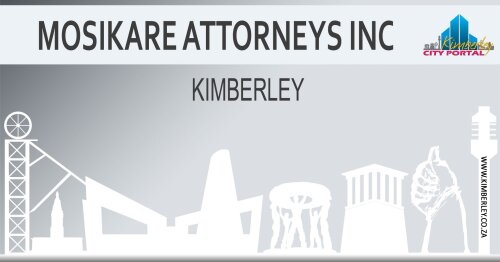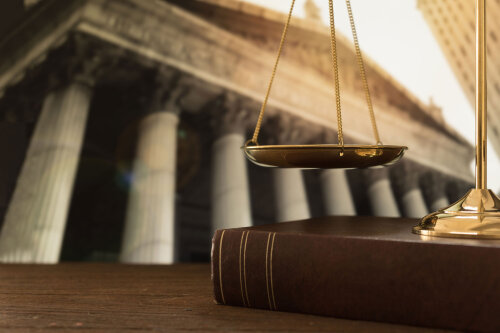Best Appeal Lawyers in Kimberley
Share your needs with us, get contacted by law firms.
Free. Takes 2 min.
List of the best lawyers in Kimberley, South Africa
About Appeal Law in Kimberley, South Africa
In Kimberley, South Africa, like other parts of the country, appeal law focuses on an appellant's right to appeal a court decision in a lower court to a higher one, with the aim of having the decision overturned. It's centered in the principles of providing fair and judicious decision-making processes. There are various appeal routes to explore, depending on the case such as the High Court, the Supreme Court of Appeal, and even the Constitutional Court for constitutional matters. Appeals can be based on several factors including points of law, factual findings, or sentences adjudged.
Why You May Need a Lawyer
There are a variety of situations where an experienced appeal lawyer will be greatly beneficial. If you or a loved one has been convicted in a court and the conviction or sentence seems unfair, a lawyer specialising in appeal law can review the case to determine if there are grounds for an appeal. Additionally, navigating through the appeal process can be complex, as it involves understanding legal terminology, court procedures, proper filing, and strict timeframes for submission.
Local Laws Overview
The appeal process in Kimberley, South Africa, is governed by local laws such as the Constitution and the Criminal Procedure Act among others. A fundamental aspect is that an appellant must have "leave" or permission to appeal, which can be granted by the court that issued the original judgment or the court where the appeal will be heard. Appeals must be based on points of law, the merit, or severity of the sentence, and not simply dissatisfaction with the outcome. Moreover, the appellant must demonstrate that another court may reach a different decision after reviewing the facts and law of the case.
Frequently Asked Questions
What is the process for appealing a court decision?
Appealing a court decision initiates with filing a notice of appeal, giving reasons for the appeal. This must be submitted within a specified timeframe, usually 21 days for criminal cases.
Can I appeal any court decision?
Not all decisions can be appealed. Certain rulings, especially those involving discretionary judgments by a magistrate or judge, may not have grounds for appeal. A competent lawyer can provide guidance on this.
When should I hire a lawyer for an appeal?
It's advisable to hire a lawyer as soon as you consider an appeal. The appeal process often involves strict time frames so immediate legal advice is beneficial.
Can the court refuse to hear my appeal?
Yes, if the court does not grant leave for your appeal, the appeal will not be heard. This generally happens when the court believes there's no prospect of success in the appeal.
What outcomes can I expect from an appeal?
An appeal can result in the original judgement being confirmed, amended, or set aside. On rare occasions, a retrial may be ordered.
Additional Resources
Legal Advice Centres, Law Clinics at Universities, and the Legal Aid Board can aid in providing legal advice. The Department of Justice and Constitutional Development provides useful online resources, and the South African Law Reports documents a record of precedents in South African appeal law.
Next Steps
If you need legal assistance for an appeal, consult with an experienced appeal lawyer as soon as possible. You should provide your lawyer with all relevant court records and documents related to your case to enable comprehensive review and planning of a strategic approach.
Lawzana helps you find the best lawyers and law firms in Kimberley through a curated and pre-screened list of qualified legal professionals. Our platform offers rankings and detailed profiles of attorneys and law firms, allowing you to compare based on practice areas, including Appeal, experience, and client feedback.
Each profile includes a description of the firm's areas of practice, client reviews, team members and partners, year of establishment, spoken languages, office locations, contact information, social media presence, and any published articles or resources. Most firms on our platform speak English and are experienced in both local and international legal matters.
Get a quote from top-rated law firms in Kimberley, South Africa — quickly, securely, and without unnecessary hassle.
Disclaimer:
The information provided on this page is for general informational purposes only and does not constitute legal advice. While we strive to ensure the accuracy and relevance of the content, legal information may change over time, and interpretations of the law can vary. You should always consult with a qualified legal professional for advice specific to your situation.
We disclaim all liability for actions taken or not taken based on the content of this page. If you believe any information is incorrect or outdated, please contact us, and we will review and update it where appropriate.











